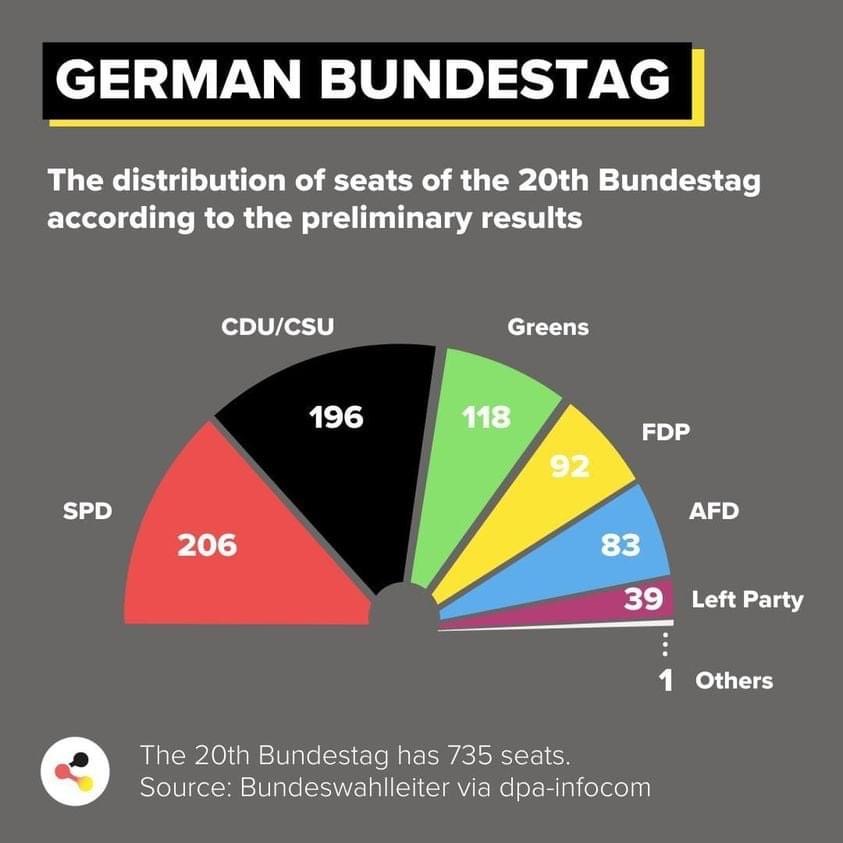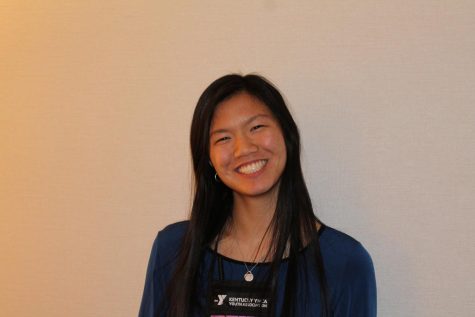Auf Wierdesehen Merkel– 2021 German Elections
October 8, 2021
After 15 years of Angela Merkel’s chancellorship, the German people elected new leadership. Merkel’s previous announcement that she would not be running for Chancellor in the 2021 elections marked the end of an era. Merkel and her party, the Christian Democratic Union (CDU), have been consistent within politics for a generation of young Germans.
I had the opportunity to speak with Antonia Bader, a German foreign exchange student at BCHS. When asked about the personal effects of this change, Antonia explained “[she] has never known anything else.” and that like many other young Germans, [Angela Merkel] was the chancellor for her entire life. The CDU, Germany’s centre-conservative party, lost the majority to the Social Democratic Party (SPD), the centre-progressive party. This majority puts the SPD in a better position to gain the chancellorship. When I spoke with Antonia about the ideological shift, she noted that in her community, an established conservative region, “it wasn’t really a surprise.” She explained that despite the shift, in terms of Germany’s political spectrum, both parties are moderate, and have historically worked together. With this consideration, Antonia felt that “[we] won’t see an extreme change in the politics.”
When I asked Mr. Evans, the German teacher, about his thoughts on these changes, he felt that Merkel stepping down “is a victory for democratic values… a victory for Germany and an indicator of a healthy functioning democracy.” He also felt that U.S.- German relations are going to continue being strong, as there are shared economic and military interests.
When I spoke with Antonia, she conveyed that there was this sense of continual change. This may be because of the German Federal election process. Unlike the U.S. election system, Germany’s Chancellor is voted in by the Bundestag or the parliament. Previous to election day, parties elect their candidates. When voting in the federal election, voters select a party rather than the candidate, though they are still voting for candidates indirectly. The German political system consists of multiple parties, making it hard for any one party to win the majority, and gain chancellorship, without creating coalitions. Coalitions, which comprise the majority, allow for any party to win the Chancellorship, though it often goes to the party who has won the popular vote. The establishment of these coalitions is often months long, as the agreements and negotiations are extremely detailed.
As the results of the election are being finalized, both the SPD and CDU are looking towards negotiations and vying for the chancellorship. This election was close, with the winning margins being only 1.6% (according to Der Spiegel). SPD leader, Olaf Scholz, has previously voiced his desire to work with the Greens and Liberal Free Party. However, CDU leader, Armin Laschet is adamant in also creating a coalition with the Greens and the Liberal Democratic Party, stating “He who can build a majority to back him will become chancellor.”
Mr. Evans predicted that the SPD would create a coalition between the FDP and Greens, combining the shared interests of labor and climate issues. He doubted that a coalition would be created with the CDU, because of their candidate’s unpopularity. He also felt strongly that the far-right, AFD, would not be included in any coalitions.
The next couple of months of German politics will be very exciting, as all parties prepare for the retirement of longtime chancellor Angela Merkel. Many are reflecting on the impact of Merkel’s decade and a half influence on politics and government. Simultaneously, many are looking forward to the possibilities of a government and political system, ready to be shaped by new German leaders.


